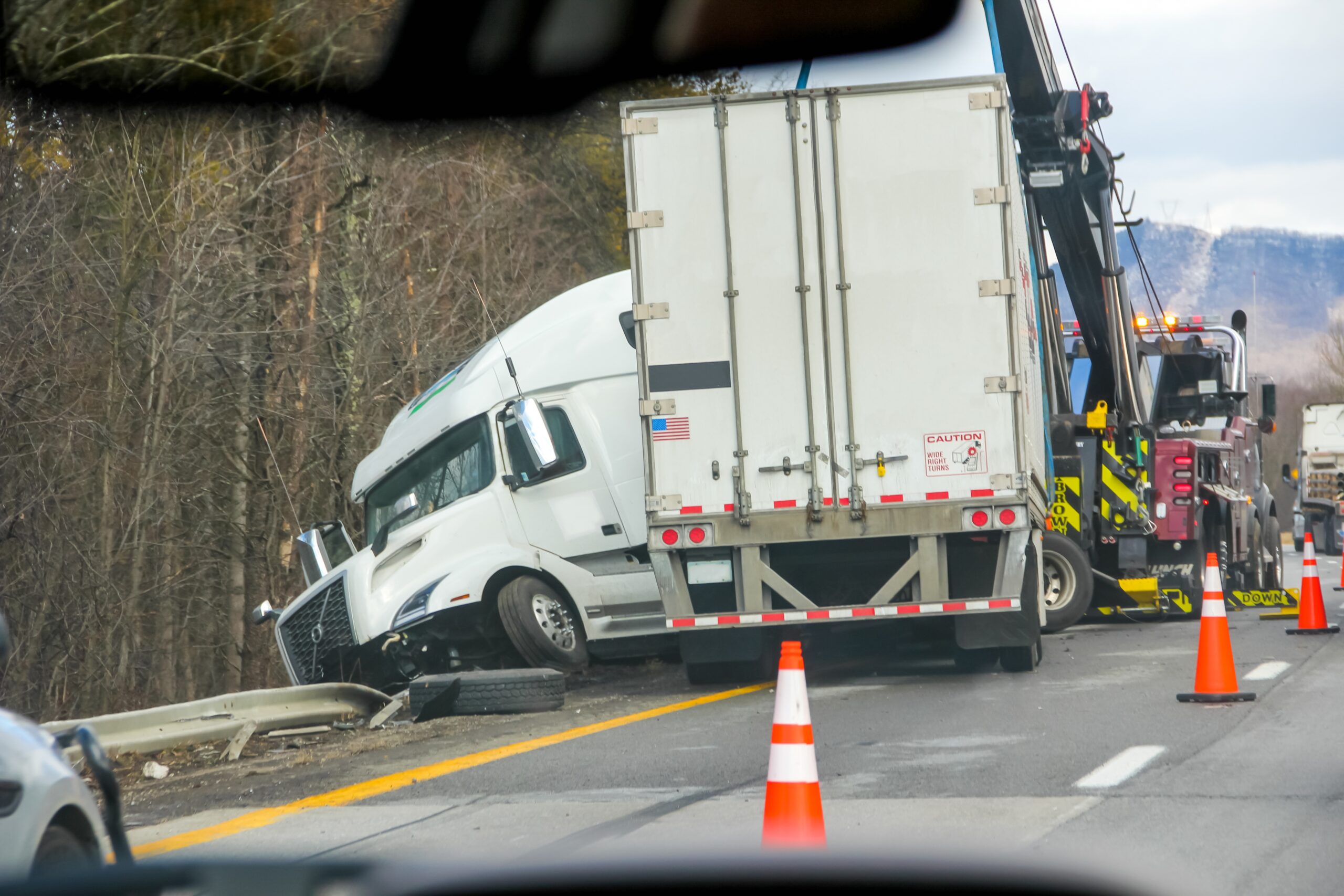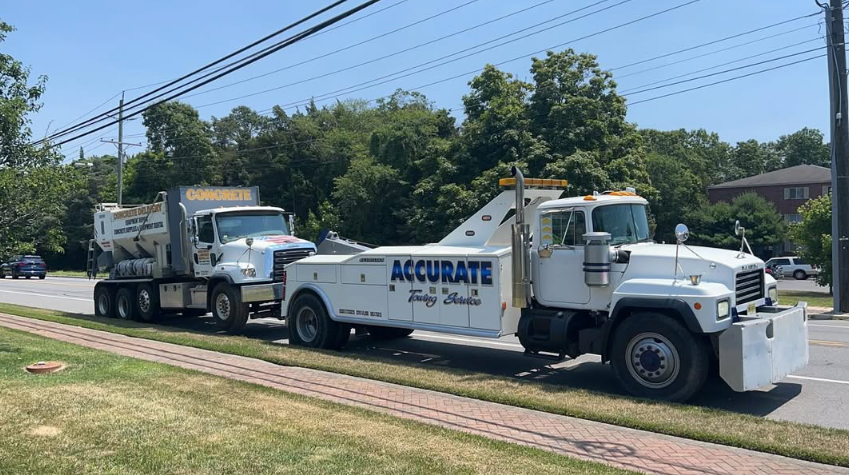When a vehicle breaks down or is involved in an accident, the first call is usually to a towing company. However, not all towing services are the same. Light-duty towing and heavy-duty towing require different equipment, skills, and techniques. Understanding the difference between the two can help business owners, fleet managers, and everyday drivers know what type of service they need when the unexpected happens. For anyone managing a fleet or operating commercial vehicles, finding the right truck towing NJ provider is essential. From passenger cars and vans to semi-trucks and construction equipment, each requires specialized handling. Choosing a towing company that understands these differences ensures your vehicle or equipment is transported safely and efficiently.
Heavy-Duty Towing vs. Light-Duty Car Towing
Understanding Light-Duty Towing
Light-duty towing covers most everyday vehicle recoveries. This includes cars, small SUVs, motorcycles, and light pickup trucks. These vehicles typically require towing after a minor breakdown, flat tire, dead battery, or minor collision.
Light-duty towing focuses on accessibility and speed. Most jobs can be handled using a flatbed tow truck or a wheel-lift truck. Flatbeds are preferred when a vehicle needs to be lifted completely off the ground to prevent damage, while wheel-lift trucks are ideal for quick roadside assistance where space is limited.
A professional towing company will send the appropriate vehicle based on the type of car, the extent of the issue, and the surrounding conditions. For instance, a car stranded in a parking garage may require a smaller wheel-lift truck, while a damaged sports car would benefit from flatbed towing to ensure it stays level during transport.
Light-duty towing might seem simple, but it still requires precision and the right equipment to avoid causing further damage. Reliable towing companies invest in modern tow trucks and trained operators to handle these smaller-scale recoveries safely.
What Qualifies as Heavy-Duty Towing
Heavy-duty towing involves larger, heavier vehicles such as commercial trucks, buses, tractor-trailers, and construction equipment. These vehicles often weigh tens of thousands of pounds and require specialized equipment for safe transport.
Heavy towing is typically needed in situations such as:
- Commercial truck breakdowns on highways
- Tractor-trailer rollovers or jackknifes
- Recovery of construction or industrial equipment
- Long-distance transport of oversized vehicles
Because of the size and weight of these vehicles, standard tow trucks cannot safely handle the job. Heavy-duty wreckers and rotators are designed for this purpose. These trucks are equipped with powerful winches, extended booms, and high-torque systems capable of lifting and recovering even the largest vehicles.
Heavy-duty towing requires significant experience and planning. Operators must know how to safely balance weight, secure loads, and coordinate with law enforcement or other emergency responders, especially in accident or recovery situations.

Why Heavy Towing Requires Special Equipment and Methods
Equipment Differences
Heavy vehicles demand more than just strength; they require specialized machinery capable of safely handling their weight and dimensions. Heavy-duty wreckers are equipped with reinforced frames, hydraulic systems, and advanced winching capabilities that can lift and stabilize large vehicles without causing further damage.
In addition to standard wreckers, towing companies may use equipment such as:
- Rotator Tow Trucks: Designed for complex recoveries, these trucks have rotating booms that can lift vehicles from difficult angles.
- Lowboy Trailers: Used for hauling heavy equipment or trucks over long distances.
Using the correct equipment ensures not only the safe recovery of the vehicle but also the safety of the towing operators and other motorists on the road.
Technique and Expertise
Unlike standard car towing, heavy-duty towing requires a deep understanding of vehicle structure, weight distribution, and physics. Improper handling of a commercial vehicle can lead to serious damage or even injuries. That’s why experience and training are critical.
Certified towing operators undergo extensive training to handle large-scale recoveries. They know how to properly hook and secure a semi-truck, balance loads, and manage the towing process on different terrains. In many cases, these professionals must also navigate tight spaces, heavy traffic, or hazardous conditions safely.
Having trained experts who understand these challenges ensures that each job is handled with precision and safety in mind. This level of expertise is what separates professional truck towing NJ companies from light-duty towing operators.
Safety and Regulatory Compliance
Safety is a top priority in all towing operations, but it becomes even more critical with heavy-duty vehicles. These recoveries often take place on highways or busy roads where additional precautions are required.
Professional towing companies follow strict safety protocols and comply with Department of Transportation (DOT) and state regulations regarding vehicle weight limits, permits, and securement practices. Adhering to these guidelines helps prevent accidents during towing and ensures all vehicles are transported legally and safely.
When dealing with large-scale recoveries, choosing an experienced towing provider isn’t just about efficiency; it’s about safety and compliance.
Need Truck Towing in NJ? Trust Accurate Towing Service
For business owners and fleet managers across New Jersey, Accurate Towing Service stands out as a trusted provider for both heavy-duty and light-duty towing needs. With over three decades of experience, Accurate Towing has built a reputation for professionalism, reliability, and quick response times.
Why Choose Accurate Towing?
- Comprehensive Towing Capabilities: Whether you’re dealing with a disabled car, a broken-down delivery truck, or a jackknifed tractor-trailer, Accurate Towing has the right equipment and expertise to handle the job.
- Advanced Equipment: Our fleet includes state-of-the-art flatbeds, heavy-duty wreckers, rotators, and recovery tools designed for any towing situation.
- Trained and Certified Operators: Our technicians are certified professionals trained in all aspects of towing, recovery, and roadside assistance.
- 24/7 Availability: We know that breakdowns don’t follow a schedule. Our team is available around the clock to provide immediate assistance whenever and wherever it’s needed.
- Commitment to Safety: Every recovery and tow is performed with safety as the top priority—for our operators, your vehicle, and everyone on the road.
Accurate Towing Service provides truck towing in NJ that businesses can depend on. Whether it’s a single heavy-duty recovery or an entire fleet that needs servicing, our team is equipped to handle it efficiently and professionally. Contact us today to learn more about our professional towing and recovery services.

Truck Towing NJ FAQs
What is the difference between heavy-duty and light-duty towing?
Light-duty towing is used for smaller vehicles such as cars, SUVs, and motorcycles, while heavy-duty towing handles large vehicles like trucks, buses, and tractor-trailers that require specialized equipment.
What kind of equipment is used for heavy-duty towing?
Heavy-duty towing uses specialized equipment such as rotator tow trucks, lowboy trailers, and reinforced wreckers with hydraulic systems capable of lifting and transporting large commercial vehicles safely.
Why does heavy-duty towing require more expertise?
Heavy-duty towing involves complex procedures like load balancing, vehicle stabilization, and coordination with safety authorities. Certified operators use advanced techniques to prevent further damage and ensure safe recovery.
When should I call for heavy-duty towing instead of standard towing?
You should call for heavy-duty towing if your vehicle is a commercial truck, tractor-trailer, bus, or heavy equipment that exceeds the weight or size limits of standard tow trucks.
Are towing companies required to follow safety regulations?
Yes. Professional towing providers must comply with DOT and state safety regulations, including proper load securement, equipment maintenance, and operator certification to ensure safe and legal transport.
Does Accurate Towing offer both heavy and light-duty towing?
Yes. Accurate Towing Service provides both heavy-duty and light-duty towing throughout New Jersey, equipped to handle everything from passenger cars to commercial fleets.
Is Accurate Towing available 24/7?
Absolutely. Accurate Towing offers 24/7 service, ensuring help is always available when breakdowns, accidents, or recovery situations occur.

